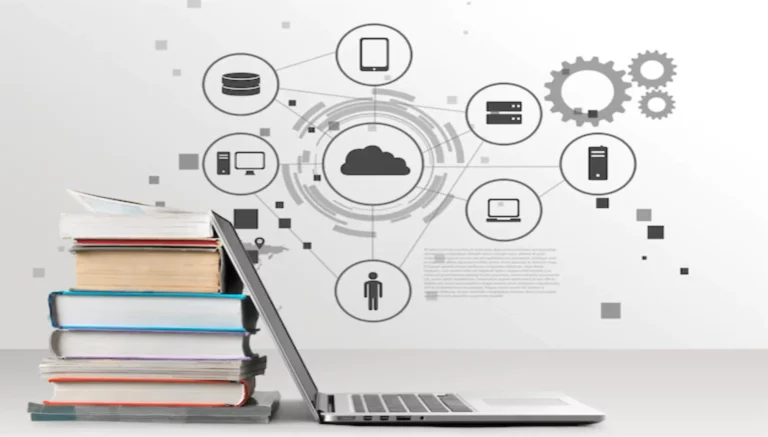
In today’s digital age, technology has become an integral part of our lives. It has changed the way we communicate, learn, work, and access information. For students, being digitally literate is no longer a choice but a necessity. Digital literacy refers to the ability to find, evaluate, use, and create information using digital technologies effectively. In this article, we will explore the importance of enhancing digital literacy skills for students.
The Technology Improvement
Technology is rapidly evolving, shaping the way we live, work, and communicate. Students must keep pace with these changes to remain competitive and adaptable in the digital age. From artificial intelligence to virtual reality, the technological landscape offers immense opportunities for learning and growth. However, it also presents new challenges that require students to possess strong digital literacy skills
Key Components of Digital Literacy Skills
Digital literacy skills comprise various components that contribute to a comprehensive understanding and effective utilization of technology.
- Information Literacy: The ability to find, evaluate, and use information from digital sources critically.
- Media Literacy: The competence to analyze and interpret media messages, understand bias, and differentiate between reliable and misleading content.
- Cybersecurity Literacy: Knowledge of best practices for protecting personal information, recognizing online threats, and practicing safe and responsible digital behavior.
- Communication and Collaboration Skills: Proficiency in using digital tools and platforms to communicate, collaborate, and share ideas effectively.
- Critical Thinking and Problem-Solving Skills: The capacity to analyze complex situations, think critically, and apply problem-solving strategies using digital resources.
- Ethical and Responsible Technology Use: Understanding the ethical implications of digital technology, respecting copyright and intellectual property, and practicing responsible online behavior.
The Importance of Digital Literacy Skills
Digital skills are crucial for students as they navigate the digital landscape. Here are some key reasons why enhancing digital literacy skills is important.
- Access to Information: The internet provides a vast amount of information, but students need the skills to navigate through it effectively. Digital literacy equips them with the ability to find reliable sources, evaluate information critically, and discern between credible and misleading content.
- Communication and Collaboration: Digital tools and platforms enable students to communicate and collaborate with peers and experts from around the world. Digital literacy skills help students understand the etiquette of online communication, engage in meaningful discussions, and work effectively in virtual teams.
- Creativity and Innovation: Technology offers students a multitude of creative opportunities, such as creating digital art, designing websites, or developing applications. Digital literacy skills empower students to express their creativity, think critically, and solve problems using technology.
- Career Readiness: In today’s job market, digital skills are highly sought after. Enhancing digital literacy skills equips students with the competencies required for future careers. Proficiency in digital tools and platforms can open doors to various job opportunities and enhance employability.
Strategies to Enhance Digital Literacy Skills
Now that we understand the importance of digital literacy skills, let’s explore some strategies to help students enhance these skills.
Curriculum
Schools should integrate digital literacy into their curriculum. This can include dedicated courses or embedding digital literacy skills into existing subjects. The curriculum should cover topics such as internet safety, online research, digital citizenship, and effective use of productivity tools.
Internet Safety and Digital Citizenship
Educating students about online safety is crucial. They should be aware of potential risks, such as cyberbullying, identity theft, and scams. Teaching them about responsible digital citizenship, including ethical behavior, respect for others, and protecting personal information, is equally important.
Critical Thinking and Information Evaluation
Students should be taught how to critically evaluate the information they find online. They need to understand the difference between credible and unreliable sources, recognize biases, and verify facts. Incorporating activities that promote critical thinking and information evaluation can help students develop these skills.
Collaboration and Communication
Encouraging students to collaborate on projects and communicate using digital tools can enhance their digital literacy skills. Teachers can assign group tasks that require students to use online platforms for research, document sharing, and virtual meetings. This promotes effective communication, and teamwork, and familiarizes students with various digital collaboration tools.
Multimedia Creation
Engaging students in creating multimedia content fosters creativity and digital literacy skills. Assignments that involve creating presentations, videos, podcasts, or websites enable students to develop skills in content creation, design, and storytelling. This hands-on approach enhances their understanding of digital tools and encourages self-expression.
Ongoing Professional Development for Educators
Teachers play a vital role in enhancing students’ digital literacy skills. Schools should provide regular professional development opportunities for educators to stay updated on the latest digital tools, teaching strategies, and online safety practices. Equipping teachers with digital literacy skills ensures they can effectively guide and support students in their digital learning journey.
Parent and Community Involvement
Engaging parents and the wider community in promoting this is crucial. Schools can organize workshops or informational sessions for parents to educate them about the importance of digital literacy and how they can support their children. Community partnerships with organizations, libraries, or technology companies can provide additional resources and opportunities for students to enhance their digital literacy skills.
Encourage Exploration and Experimentation
Students learn best by actively exploring and experimenting with technology. Encourage them to explore new tools, apps, or platforms that align with their interests and goals. Provide opportunities for them to experiment, make mistakes, and learn from them. This fosters a sense of curiosity, adaptability, and a growth mindset when it comes to technology.
Digital Ethics and Online Etiquette
Teaching students about digital ethics and online etiquette is essential. They should understand the importance of respecting others’ privacy, giving credit for the work of others, and using technology responsibly. Discussing real-life scenarios and ethical dilemmas can help students develop a sense of digital ethics and make responsible choices online.
Continuous Learning and Adaptation
The digital landscape is constantly evolving, and new technologies emerge regularly. Students need to embrace a mindset of continuous learning and adaptation. Encourage them to stay updated on the latest trends, tools, and digital advancements. Foster a culture of curiosity and encourage students to seek out new learning opportunities independently.
Integration in Education
To ensure students develop strong digital literacy skills, educational institutions must integrate digital literacy into the curriculum effectively.
- Curriculum Integration: Infusing digital literacy across various subject areas to emphasize its relevance and importance in different fields of study.
- Teacher Training and Professional Development: Providing educators with ongoing training and support to enhance their digital literacy skills and pedagogical strategies for teaching digital literacy.
- Creating a Technology-Rich Learning Environment: Equipping classrooms with the necessary technological infrastructure and resources to foster digital literacy development.
Promoting Digital Citizenship
Developing skills goes hand in hand with promoting digital citizenship. The following steps should be considered to promote digital citizenship.
- Online Privacy and Security: Teaching students about the importance of safeguarding their personal information, using strong passwords, and understanding privacy settings to protect themselves online.
- Digital Footprint and Online Reputation: Educating students about the permanence of their digital footprint and the potential impact it can have on their future opportunities, emphasizing the importance of responsible online behavior and positive digital footprints.
- Online Etiquette and Responsible Behavior: Instilling in students the values of respect, empathy, and responsible behavior in their online interactions, promoting digital etiquette, and discouraging cyberbullying or harmful online behavior.
- Digital Rights and Responsibilities: Educate students about their rights and responsibilities as digital citizens, including respecting intellectual property, understanding copyright laws, and advocating for digital rights.
Resources for Developing Digital Literacy Skills
Various resources are available to support the development of digital literacy skills. They include;
- Online Courses and Tutorials: Accessible platforms offering courses and tutorials on digital literacy topics, allowing students to learn at their own pace.
- Educational Websites and Platforms: Online portals and platforms specifically designed for educational purposes, providing interactive learning experiences and resources.
- Digital Tools and Applications: Utilizing a range of digital tools and applications that facilitate learning and skill development in areas such as coding, media literacy, and online collaboration.
- Libraries and Community Resources: Collaborating with local libraries, community centers, and organizations to provide access to digital resources, workshops, and training programs.
Overcoming Challenges in Developing Digital Literacy Skills
Several challenges may arise when enhancing digital literacy skills, and it is important to address them.
- Technological Barriers: Ensuring access to adequate technology resources and internet connectivity for all students, regardless of their socioeconomic backgrounds.
- Digital and Accessibility Issues: Implementing initiatives to bridge digital apathy, providing equal opportunities for all students to develop digital literacy skills.
- Teacher Resistance and Lack of Training: Providing comprehensive professional development and training programs to support teachers in developing their digital literacy skills and incorporating them into their instruction effectively.
- Addressing Misinformation and Digital Literacy Gaps: Implementing strategies to address the spread of misinformation, develop critical thinking skills, and bridge gaps in digital literacy knowledge among students.
In the age of technology, enhancing digital literacy skills is crucial for students to thrive academically, and professionally, and as responsible digital citizens. By integrating digital literacy into education, employing effective strategies, and promoting digital citizenship, we can equip students with the necessary competencies to navigate the digital world confidently and responsibly. By fostering digital literacy, we empower students to harness the full potential of technology, adapt to future advancements, and contribute positively to the digital landscape.
Cultivating digital literacy skills in students nurtures their creativity, problem-solving abilities, and adaptability. These skills extend beyond the classroom, preparing students for a future where technology is deeply integrated into every aspect of society.
As technology continues to evolve at a rapid pace, it is essential to remain agile in our approach to digital literacy education. Educators should regularly update their knowledge and adapt their teaching strategies to align with emerging technologies and digital trends. Collaboration between educators, parents, and community stakeholders is vital to creating a comprehensive and cohesive approach to digital literacy development.



